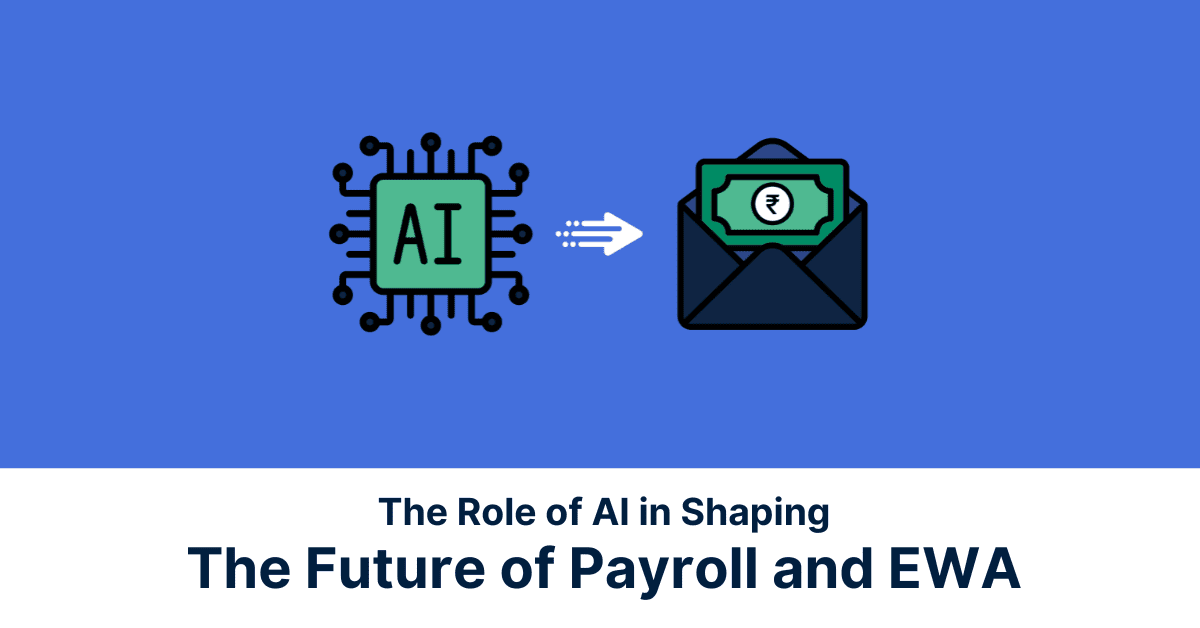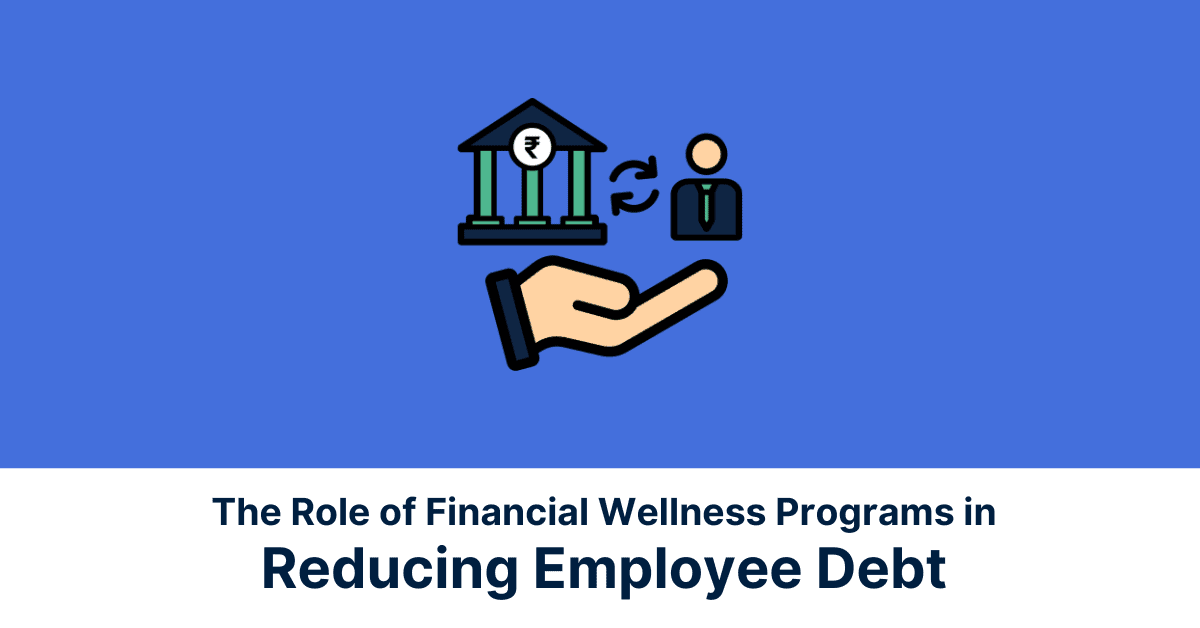It is no surprise that financial wellbeing is a growing concern for many given the surging cost of living, increased price of commodities and inflation. Financial stress acts as a heavy shadow, dimming mental well-being.
This burden bleeds into the professional space, where employees may grapple with lower performance, higher absenteeism, and an increased rate of mistakes – all red flags for potential business headaches.
To support employee well-being and business performance, managers must invest time and resources in their teams’ financial well-being at work. In this article, we will cover things you can start implementing to improve the financial wellbeing of your employees.
How Financial Stress can affect Productivity
Reduced Focus:
Financial stress can act as a mental burden, making it challenging for employees to concentrate on their tasks while being distracted by personal finances. This means that even when your employees are present, they aren’t working at full capacity.
Increased Absenteeism:
Employees facing financial difficulties may find themselves dealing with personal matters during work hours, leading to increased absenteeism. When workers are missing, their workload goes undone. This means falling short of production goals or stretching resources thin by asking other employees to cover potentially resulting in widespread stress.
Decreasing Job Satisfaction:
Financial stress can contribute to a decrease in job satisfaction. It disrupts employees’ focus, leaving them emotionally disengaged and detached from their work. This apathy towards tasks and organisational goals creates a fertile ground for burnout and hinders overall productivity.
Impact on Physical and Mental Health:
Financial stress weaves a tight web, ensnaring physical and mental health alike. Stress can manifest in physical health problems such as headaches, stomachaches, and fatigue.
It’s important for employers to understand the impact of financial stress on their workforce, and it’s equally important for employees to recognise when they’re struggling with financial anxieties and take the necessary steps to address them.
Lower Creativity and Problem-Solving Skills:
The weight of financial burdens can crush even the most agile minds. Employees juggling financial anxieties may find themselves stuck in mental ruts, unable to break free and generate the unconventional solutions needed to tackle workplace challenges.
8 Ways to Help employees with Financial Stress
1. Financial Literacy:
Employees need to make informed decisions about their money, they just lack the roadmap. This is where your company can make a profound difference. By implementing a financial wellness program, you can equip your employees with the tools, resources, and expert guidance they need to navigate the financial landscape with ease. Such as:
- Workshops explaining how mortgages work
- Interactive sessions breaking down how interest rates impact savings, loans, and everyday transactions
Practical tips on budgeting and saving in the face of rising prices
2. Home Buying Assistance:
Employer-assisted housing programs bridge the gap between financial realities and housing dreams. They simplify both buying and renting by offering flexible options like down payment assistance and closing cost buy-downs, making an employee’s path to a secure home smoother than ever.
3. Increase Pay:
Employers have the option to raise salaries to a point where reductions in public benefits are completely compensated, allowing families to cover living expenses in their local communities. A case in point is PayPal, which responded to an evaluation of employees’ net disposable income, acknowledging the challenge they faced in meeting essential needs and lacking funds for savings.
Though not every employer may be able to implement such substantial pay increases, alternative measures can be explored.
4. Student Loan Repayment Assistance:
With student loan debt weighing on the shoulders of numerous employees, companies are progressively introducing assistance programs. One approach involves offering counselling services to help employees comprehend and navigate student loan deferment, forbearance, or refinancing choices.
5. Childcare Programs:
On-site programs can be significantly cheaper than traditional daycare centres, offering employees substantial savings each month. Companies can receive tax credits for offering childcare benefits, further easing the financial burden on families. Knowing their children are nearby and well-cared for allows employees to focus better on their work, reducing stress and boosting productivity.
6. Paid Leave for Working Parents:
For working parents, navigating unexpected childcare disruptions and finding reliable infant care can feel like walking a tightrope. Having to juggle with deadlines and spreadsheets while fretting over closed daycare centres or an unfilled infant care slot upon returning from parental leave.
This is where paid family leave steps in, offering a vital lifeline and alleviating financial strain during these critical times.
7. Facilitate the Learning of Stress Management Techniques:
Just like any other stressor, providing a wellness program that includes guidance on stress management skills can prove highly advantageous for your employees.
Participating in the same wellness program not only gives a shared understanding but also establishes a common language for discussing financial issues that everyone can comprehend and acknowledge. Cultivating stress management skills remains crucial, even when financial challenges increase.
8. Offer On-Demand Salary Benefit:
Living paycheck to paycheck can be a constant source of anxiety for employees. Unexpected expenses, medical bills, bike or car troubles – any bump in the road can send financial stress spiralling.
The constant worry about making ends meet can be alleviated with on-demand salary access to their income. This empowers employees to feel more in control of their finances, leading to improved focus, productivity, and overall well-being.
Jify is one of the fastest-growing On-demand Salary partners in India.
Jify understands that employees are the heart of a business. It has transformed payroll services with a cutting-edge on-demand salary solution, designed to reorganise the way businesses operate and employees experience financial well-being.
Imagine a workplace where financial stress is a thing of the past. Jify offers a seamless, user-friendly platform that allows your employees to access their salary on demand, bridging the gap between paydays and life’s unexpected expenses. No more waiting anxiously for the end of the month – our service ensures your employees have the financial flexibility they deserve.
Final Take:
From financial literacy to childcare initiatives, employers have diverse options to address their workforce’s financial needs. While substantial pay increases may not be feasible for all, integrating alternatives like on-site childcare and stress management programs can significantly increase overall well-being.
Success lies in turning these initiatives into the bedrock of our workplace culture, making employee financial support a pillar of your organisational ethos. You can build a workplace where financial stress doesn’t hold anyone back, paving the way for a more productive, engaged, and fulfilling future for all.
*Disclaimer:
The information contained herein is not intended to be a source of advice concerning the material presented, and the information contained in this article does not constitute investment advice. The ideas presented in the article should not be used without first assessing your financial situation or without consulting a financial professional.



















